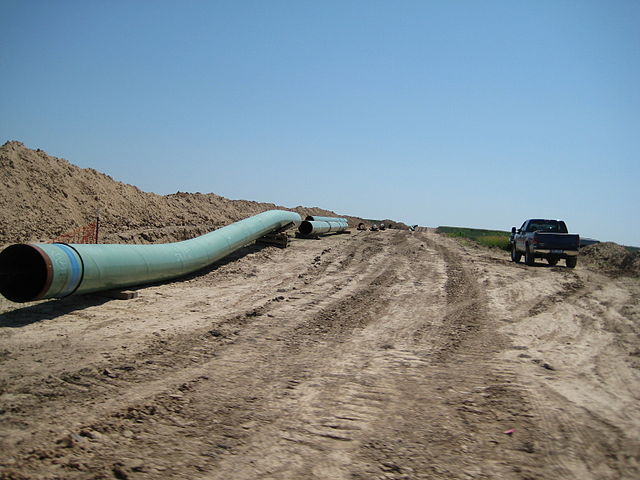RACHEL ANDERLE | STAFF REPORTER | randerle@butler.edu
Protests against the Dakota Access Pipeline are spreading across the nation, many at universities. From University of Oregon to University of California Los Angeles to University of Minnesota, and now to Butler, students are taking to the their local city streets to protest the pipeline.
The Dakota Access Pipeline would transport hundreds of thousands of barrels of crude oil daily from the Bakken Shale oil wells in North Dakota to Illinois. The 1,200-mile pipeline would travel underneath the Missouri River. The nearly $4 billion project was proposed in 2014, but opposition only began to receive national attention in recent months.
Students at Butler and other Indiana college participated in rallies downtown. The organization “No Dakota Access Indy” has held protests in Indianapolis since September. Their most recent protest took place yesterday at the Indianapolis’ Eiteljorg Museum.
“As a student, it is sometimes difficult to be an activist,” senior Autumn Tyler said.
It may be too expensive for students to go to the Standing Rock reservation in the Dakotas and protest, and local protests help make the cause more accessible to students. Tyler said she plans on attending future protests against the pipeline in Indianapolis.
“Being a student about to graduate has made me realize the importance of getting involved in the real issues of the world, especially relating to the environment,” Tyler said. “No other issues matter if we do not protect the earth we live on.”
National attention on the protests rather than the cause have the ability to change the narrative of media coverage, political science professor Robin Turner said.
The stories focus on the protestors themselves or the police rather than the issue at hand. However, there are positive aspects of issues getting national attention as long as they keep the focus on the initial cause, Turner said.
“Increasing awareness of what is happening and thus putting pressure on decision makers to take the concerns of the affected communities far more seriously is useful,” she said.
Part of the opposition comes from environmental groups. They oppose the pipeline because any leaks would result in the contamination of the Missouri river, a major source of water for surrounding communities. Additionally, a successful pipeline would contribute to the infrastructure of the oil industry, which they also oppose.
Energy Transfer Partners, the company constructing the pipeline, argued water contamination is improbable. However, Turner said that can be difficult to both ensure and monitor.
“Regulatory monitoring and enforcement is pretty weak in general,” Turner said. “And this is true nationally for the US EPA…particularly for claims involving civil rights…the history of response is pretty terrible.”
A large portion of the opposition comes from Native Americans living in North Dakota, specifically those at Standing Rock reservation. The tribe living on the reservation fears that any leaks would contaminate their main source of water. They also oppose the pipeline for cultural reasons.
“Dakota Access Pipeline and Energy Transfer Partners brazenly used bulldozers to destroy our burial sites, prayer sites and culturally significant artifacts,” Tribal Chairman David Archambault II of the Standing Rock Sioux Tribe said in a press release on the tribe’s Facebook page.
George Tinker, Native American theologian and activist, mentioned the protests at Butler’s Desmond Tutu Center conference on Nov. 12. He described there being a “systemic hole” in American politics when handling the issues of Native Americans and urged young environmentalists to go to the Standing Rock Reservation.
In response to the opposition, President Barack Obama ordered for construction on the pipeline to temporarily cease in September. That order has since been lifted by a federal court ruling.
The future of the pipeline amidst the spreading protests remains unclear as President-elect Donald Trump’s inauguration in January will mark a shift in environmental policy. Trump previously invested in the company responsible for the pipeline, Energy Transfer Partners, and their CEO made contributions to his campaign.
Every new pipeline project will bring about problems regardless of who is president, Turner said. Protests do not bring positive public relations for these companies and they are therefore more likely to pay closer attention to native lands in the future.

Thank you for this article